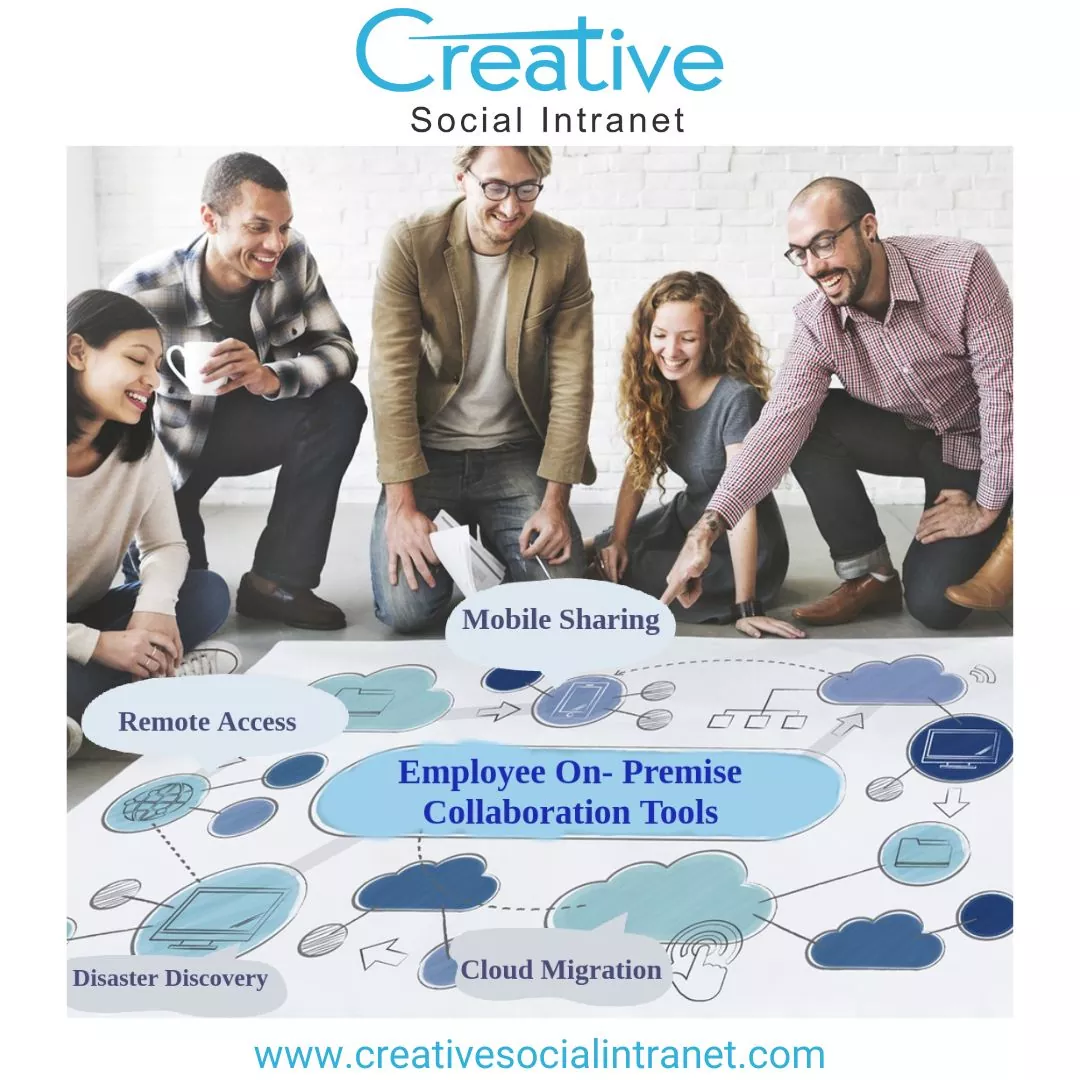Employee On-Premise Content Collaboration Tool

Do you have internal team members and outside vendors who must work together remotely at the same time? Do internal staff members collaborate on local file servers while external staff uses external content collaboration software?
Creative Social Intranet outlines that content collaboration tools offer staff a convenient way to utilize and share information within the company and externally. These tools also offer enhanced security and privacy options as they can be used to connect with customers, associates, and vendors. Examples of content collaboration tools include Google Drive, OneDrive for Business, Box, Dropbox Business, Creative Social Intranet ShareFile, and SharePoint. Why then is there a separate market segment for on-site content collaboration?
Traditional file servers have not been typically incorporated into content collaboration tools. When people talk about content collaboration, an implication of a cloud-based system is generally assumed. Still, there are reasons why internal personnel may wish to keep working with on-site file servers such as application conformity, hefty data sets, and compliance regulations. This means that moving to another online-oriented content collaboration platform created issues for individuals who must carry on working with local file servers.
Nevertheless, it is achievable to place a cloud layer in front of the on-site file servers and expand the file server abilities with Creative Social Intranet ShareFile-like characteristics. In this way, the storage of data continues on the local file server and remote personnel can upload files and folders directly to the local file servers with the aid of an internet interface.
To sum it up, on-premises content collaboration is a combination of local file servers and mobile remote agent software with an upgraded web interface. This web interface and remote agent software gives the ability for both local and remote staff to work together on the local file server by utilizing a more modern, cloud-like interface.
On-premise content collaboration involves centralizing data into a file server structure, enabling remote and mobile access to files, and unifying the data and mobile access and file sharing into one single system.
Keeping all information in one place remains the ideal way to store data, and file servers remain the most compatible way to do so for applications.
Through mobile access, file servers are enabled to have web-based access and also the capacity to securely share files through web links.
A single resolution is available to fulfill the needs of both internal collaboration and file-sharing with external associates, as well as the productivity needs of a mobile workforce.
There is no need to establish a VPN when using Web File Manager. This tool is accessed through an internet browser and all communication between the browser and server is encrypted with the HTTPS protocol, removing the need for the extra complexity of a VPN.
It is possible to upload, download, modify, and manage files and directories with just a web browser, and no additional installation is required. All that is needed is a web browser on the remote system.
By integrating the file server, the same content that is found on a mapped drive is seen in a web browser without any extra instructions needed. The network shares and drive mapping details can be seen in the browser without any additional guidance.
An answer that incorporates an iPhone app, a web browser, a Windows mapped drive, and a Mac Finder volume to enterprise Windows file servers, transforming the Windows system into a business content collaboration platform.
Enable secure remote access over HTTPS without the need to use a VPN.
Introducing a web browser and mobile app interface to boost the user experience when it comes to sharing files on mobile devices.
It ensures ongoing business operations by incorporating version control, tracking changes to files, and tracking audits on file servers located on-site.
Establishes a combined setup between local file servers and cloud storage that can be effortlessly switched to cloud-only mode.
ENGAGEMENT DRIVE PERFORMANCE